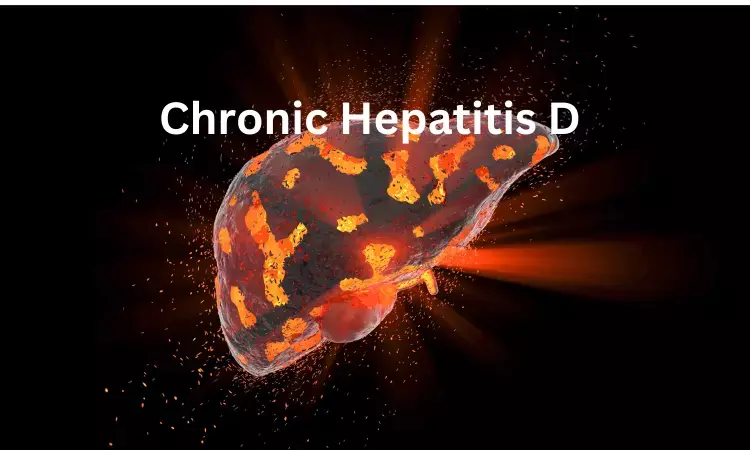- Home
- Medical news & Guidelines
- Anesthesiology
- Cardiology and CTVS
- Critical Care
- Dentistry
- Dermatology
- Diabetes and Endocrinology
- ENT
- Gastroenterology
- Medicine
- Nephrology
- Neurology
- Obstretics-Gynaecology
- Oncology
- Ophthalmology
- Orthopaedics
- Pediatrics-Neonatology
- Psychiatry
- Pulmonology
- Radiology
- Surgery
- Urology
- Laboratory Medicine
- Diet
- Nursing
- Paramedical
- Physiotherapy
- Health news
- Fact Check
- Bone Health Fact Check
- Brain Health Fact Check
- Cancer Related Fact Check
- Child Care Fact Check
- Dental and oral health fact check
- Diabetes and metabolic health fact check
- Diet and Nutrition Fact Check
- Eye and ENT Care Fact Check
- Fitness fact check
- Gut health fact check
- Heart health fact check
- Kidney health fact check
- Medical education fact check
- Men's health fact check
- Respiratory fact check
- Skin and hair care fact check
- Vaccine and Immunization fact check
- Women's health fact check
- AYUSH
- State News
- Andaman and Nicobar Islands
- Andhra Pradesh
- Arunachal Pradesh
- Assam
- Bihar
- Chandigarh
- Chattisgarh
- Dadra and Nagar Haveli
- Daman and Diu
- Delhi
- Goa
- Gujarat
- Haryana
- Himachal Pradesh
- Jammu & Kashmir
- Jharkhand
- Karnataka
- Kerala
- Ladakh
- Lakshadweep
- Madhya Pradesh
- Maharashtra
- Manipur
- Meghalaya
- Mizoram
- Nagaland
- Odisha
- Puducherry
- Punjab
- Rajasthan
- Sikkim
- Tamil Nadu
- Telangana
- Tripura
- Uttar Pradesh
- Uttrakhand
- West Bengal
- Medical Education
- Industry
Bulevirtide effective treatment option for Chronic Hepatitis D: NEJM

Chronic hepatitis D is a long-lasting infection. Coinfection with hepatitis D virus (HDV) accelerates the progression of liver disease associated with chronic hepatitis B. Bulevirtide inhibits the entry of HDV into hepatocytes. Bulevirtide is a synthetic N-acylated peptide derived from the pre-S1 domain that inhibits the Hepatitis B Virus (HBV) receptor on the hepatocyte surface and prevents the infection of healthy cells and viral spread within the liver.
An ongoing Phase 3 trial, published in the The New England journal of Medicine reports after 48 weeks of bulevirtide treatment, HDV RNA and alanine aminotransferase levels were reduced in patients with chronic hepatitis D.
Researchers in the trial included patients with chronic hepatitis D, with or without compensated cirrhosis, were randomly assigned, in a 1:1:1 ratio, to receive bulevirtide subcutaneously at 2 mg per day (2-mg group) or 10 mg per day (10-mg group) for 144 weeks or to receive no treatment for 48 weeks followed by bulevirtide subcutaneously at 10 mg per day for 96 weeks (control group). Patients will complete 96 weeks of additional follow-up after the end of treatment.
The primary end point was a combined response at week 48 of an undetectable HDV RNA level, or a level that decreased by at least 2 log10 IU per milliliter from baseline, and normalization of the alanine aminotransferase (ALT) level. The key secondary end point was an undetectable HDV RNA level at week 48, in a comparison between the 2-mg group and the 10-mg group.
The key findings of the study are
• A total of 49 patients were assigned to the 2-mg group, 50 to the 10-mg group, and 51 to the control group.
• A primary end-point response occurred in 45% of patients in the 2-mg group, 48% in the 10-mg group, and 2% in the control group (P<0.001 for the comparison of each dose group with the control group).
• The HDV RNA level at week 48 was undetectable in 12% of patients in the 2-mg group and in 20% in the 10-mg group (P=0.41).
• The ALT level normalized in 12% of patients in the control group, 51% in the 2-mg group (difference from control, 39% points and 56% in the 10-mg group (difference from control, 44 % points.
• Loss of hepatitis B virus surface antigen (HBsAg) or an HBsAg level that decreased by at least 1 log10 IU per milliliter did not occur in the bulevirtide groups by week 48.
• Headache, pruritus, fatigue, eosinophilia, injection-site reactions, upper abdominal pain, arthralgia, and asthenia were more common in the 2-mg and 10-mg groups combined than in the control group.
• No treatment-related serious adverse events occurred. Dose-dependent increases in bile acid levels were noted in the 2-mg and 10-mg groups.
Researchers concluded “After 48 weeks of bulevirtide treatment, HDV RNA and ALT levels were reduced in patients with chronic hepatitis D.”
Reference: Heiner Wedemeyer, Aleman, Soo et al, A Phase 3, Randomized Trial of Bulevirtide in Chronic Hepatitis D; New England Journal of Medicine; Doi:https://www.nejm.org/doi/full/10.1056/NEJMoa2213429
MSc. Neuroscience
Niveditha Subramani a MSc. Neuroscience (Faculty of Medicine) graduate from University of Madras, Chennai. Ambitious in Neuro research having worked in motor diseases and neuron apoptosis is interested in more of new upcoming research and their advancement in field of medicine. She has an engrossed skill towards writing and her roles at Medical dialogue include Sr. Content writer. Her news covers new discoveries and updates in field of medicine. She can be reached at editorial@medicaldialogues.in
Dr Kamal Kant Kohli-MBBS, DTCD- a chest specialist with more than 30 years of practice and a flair for writing clinical articles, Dr Kamal Kant Kohli joined Medical Dialogues as a Chief Editor of Medical News. Besides writing articles, as an editor, he proofreads and verifies all the medical content published on Medical Dialogues including those coming from journals, studies,medical conferences,guidelines etc. Email: drkohli@medicaldialogues.in. Contact no. 011-43720751


